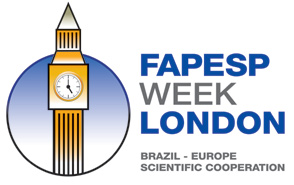British Minister emphasizes the importance of bilateral research
David Willetts praises cooperative agreements between FAPESP and agencies in the United Kingdom

By Heitor Shimizu, in London
Agência FAPESP – On September 23, during the opening session of FAPESP Week London, David Willetts, Minister of State for Universities and Science of the United Kingdom, emphasized the importance of bilateral cooperative agreements between research-funding agencies to develop science and technology.
According to Willetts, many countries highlight the importance of international collaboration, but end up entering into agreements that do not turn out well or that do not even go beyond paper.
“With Brazil and FAPESP, it has been different. We already enjoy strong collaboration and that’s why I’m very happy to be here at FAPESP Week London, the first time a Brazilian foundation has held an event of this type in the United Kingdom,” Willetts said.
“On several visits to Brazil I’ve been able to attest to the quality of the scientific collaboration between Brazil and the UK, and we would like to see this collaboration go much further,” he said.
“It’s long been known that FAPESP funds world-class research not just in Brazil, but all over the world. FAPESP has a solid reputation as one of the leaders in funding research in Brazil. And what we’ve done here in the UK, particularly in the last two years, has been to advance these collaborative programs with the state of São Paulo through FAPESP,” Willetts said.
“One year ago, September 26, 2012, in São Paulo, I was able to attend the signing ceremony of the amended Memorandum of Understanding (www.fapesp.br/7234) between FAPESP and the Research Councils UK (RCUK), renewing collaboration between the two institutions in support of research projects that bring together scientists from both countries,” Willetts said.
“I would also like to stress – and this is an important indication of the quality of our relationship – the fact that we share with FAPESP a rigorous peer review process regarding research proposals. This is critical for our countries and for our research-funding agencies, and it helps maintain the high quality of research that is funded,” the British minister went on to say.
“It’s important to underscore the fact that there are many attempts at collaborative research involving agencies from various countries that do not succeed because they lack a joint proposal review platform. And the fact that we have this type of collaboration with Brazil, through FAPESP, reflects our high level of mutual respect and trust. I’m happy that this partnership will continue to grow and that we will jointly fund even more research projects to benefit science in both our countries,” he concluded.
Willetts has been Minister of State for Universities and Science of the United Kingdom since May 2010. He studied philosophy, politics and economics at King Edward’s School, Birmingham, and Christ Church, Oxford.
He was visiting professor at Nuffield College, Oxford, directed the Ditchley Foundation, and served on the Board of the Institute for Fiscal Studies. He is the author of, “Old Europe? Demographic Change and Pension Reform,” and “The Pinch: How the baby boomers took their children’s future – and why they should give it back,” among other publications.
FAPESP Week London will take place in London through September 27, 2013.
For a live online broadcast of the event, visit: www.fapesp.br/week2013/london/6.
Organized by FAPESP, with support from the British Council and the Royal Society, the symposium reports the findings of research conducted together with British institutions at various São Paulo institutions of higher education and research.









